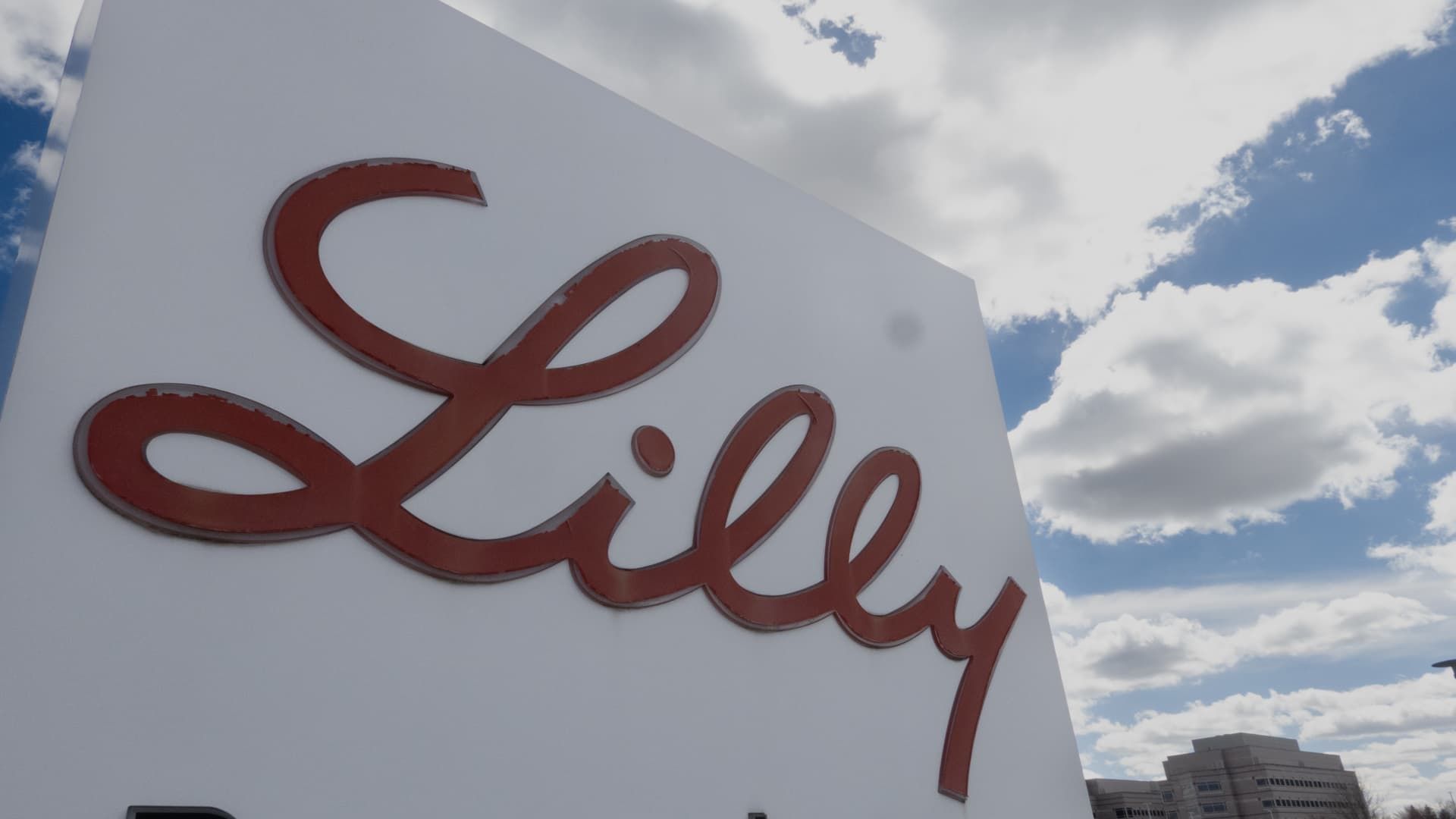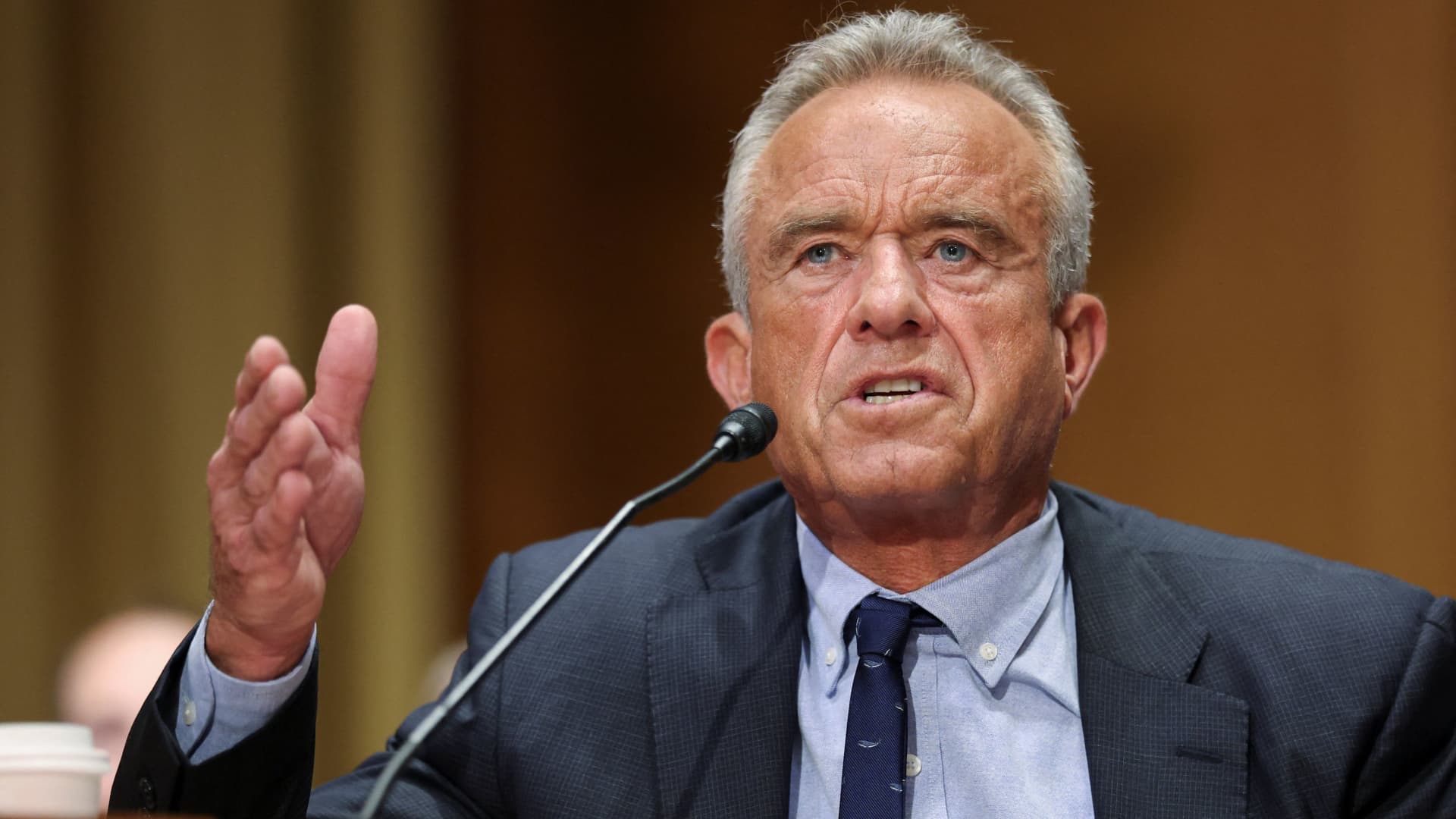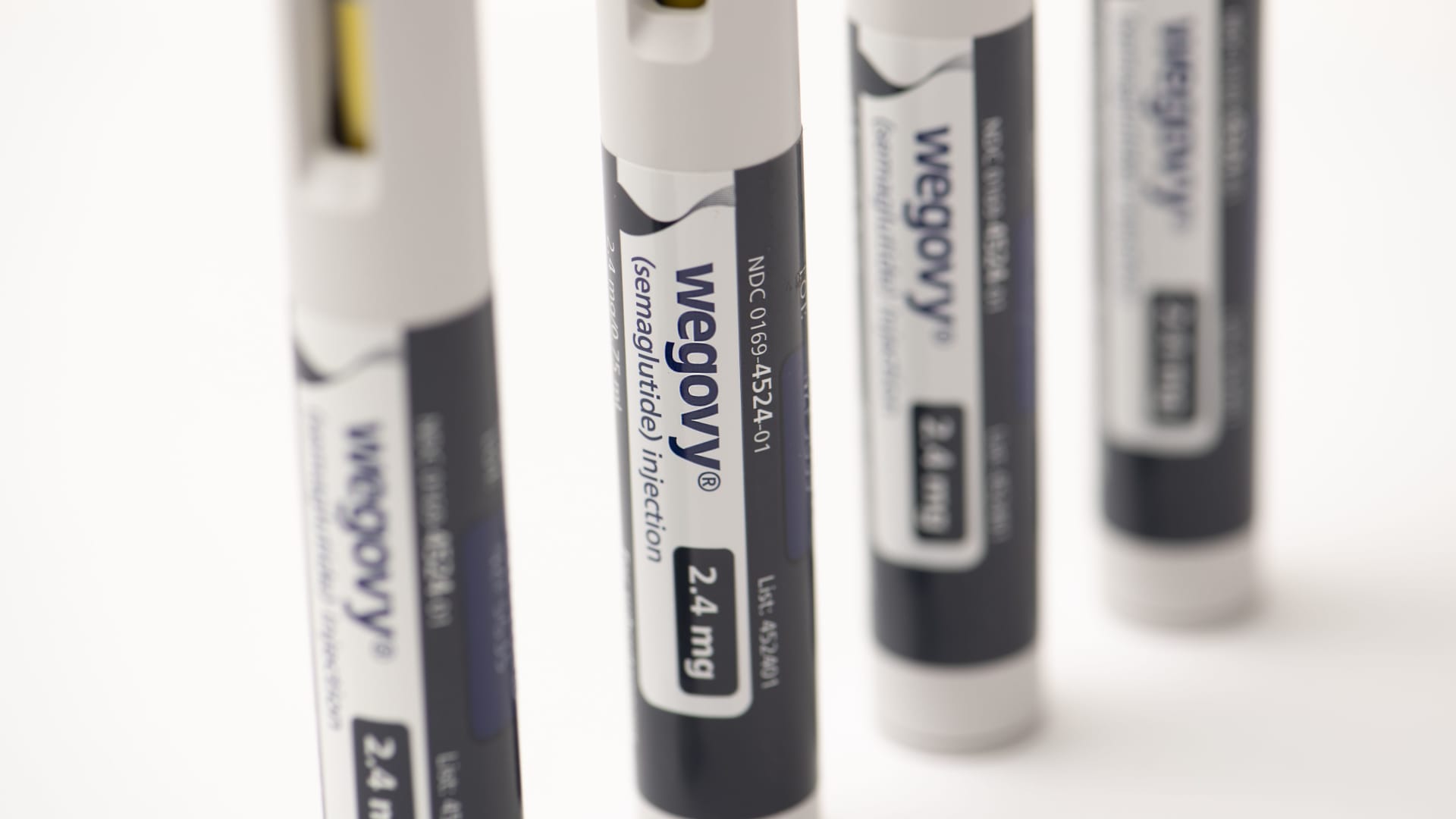A sign with the company logo sits outside the Eli Lilly and Company headquarters campus on March 17, 2024 in Indianapolis, Indiana.
Scott Olson | Getty Images
The Food and Drug Administration approved on Tuesday Eli LillyAlzheimer's drug donanemab expands limited treatment options for the mind-destroying disease in the United States
The agency approved the treatment, which will be sold under the brand name Kisunla, for adults with early symptomatic Alzheimer's disease, the company said.
According to the Alzheimer's Association, nearly 7 million Americans have Alzheimer's, which is the fifth leading cause of death among adults over 65. That number is expected to grow to nearly 13 million in the United States by 2050.
It's a long-awaited victory for Eli Lilly after donanemab faced hurdles on its way to market. The FDA rejected approval of the drug last year due to a lack of data and, surprisingly, delayed it again in March. Earlier this month, an agency advisory panel recommended full approval of the treatment, saying the benefits outweigh the risks.
Donanemab will compete directly with another treatment from Biogen and its Japanese partner Eisai called Leqembi, which has been gradually rolling out in the United States since gaining approval last summer.
Donanemab and Leqembi are milestones in Alzheimer's treatment after three decades of failed attempts to develop drugs that can combat the deadly disease. Both drugs are monoclonal antibodies that target toxic brain plaques called amyloid, a hallmark of Alzheimer's, to slow the progression of the disease in patients in the early stages.
Eli Lilly's drug slowed Alzheimer's disease progression by 35% over 18 months compared with a placebo, according to a late-stage trial. Patients were able to end their treatment and switch to a placebo after six, 12 or 18 months after reaching certain amyloid plaque-removal goals.
The drug, which is administered through monthly infusions, will cost about $12,522 for a six-month course, $32,000 for a 12-month course and $48,696 for an 18-month course. Eligible patients can receive Medicare coverage and reimbursement, Eli Lilly said.
None of the treatments are a cure. Drugs that target and remove amyloid plaque can also have significant safety risks, such as swelling and bleeding in the brain that can be serious and even fatal in some cases.
Three patients taking Eli Lilly's drug in a late-stage trial died from severe forms of those side effects, called amyloid-related imaging abnormalities, or ARIA.
Eli Lilly’s drug is now the third of its kind to reach the market after Leqembi and an ill-fated therapy from Biogen and Eisai called Aduhelm. The two companies recently dropped that drug. The FDA received criticism for its accelerated approval of Aduhelm in 2021 despite a negative recommendation from an advisory panel.












